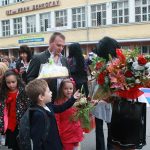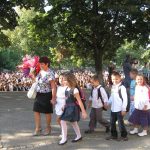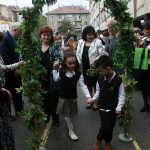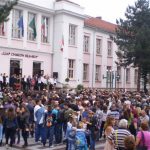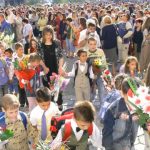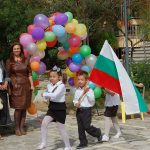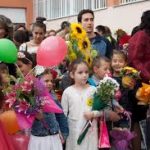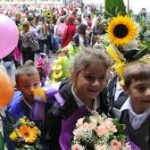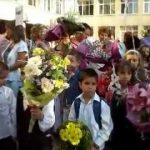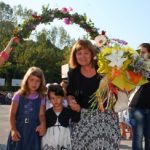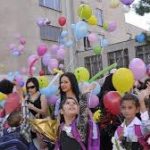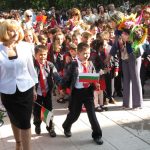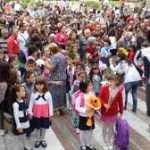NEW Bulgarian National Elections Ineffective Once Again
October 1, 2022 by Cup&Cross
Filed under Featured, Missions, News, Publication
Elections in Bulgaria: Can a Government be Formed? Lowest Voter Activity in 32 years
With 99.98% processed protocols in the CEC, 7 parties enter the next parliament. Here are the data as of 12.00 p.m. on October 3:
- GERB-SDS – 634,525 votes – 25.33%
- “We Continue the Change” – 505,914 votes – 20.20%
- Movement for Rights and Freedoms (DPS) – 344,605 votes – 13.76%
- “Vazrazhdane” – 254,725 votes – 10.17%
- Bulgarian Socialist Party (BSP) – 232,932 votes – 9.30%
- “Democratic Bulgaria” (DB) – 186,474 votes – 7.44%
- “Bulgarian Rise” – 115,837 votes – 4.62%
7 political parties elected with the following allocation of seats in the 48th National Assembly:
- GERB: 67
- “We Continue the Change”: 53
- Movement for Rights and Freedoms (DPS): 36
- “Vazrazhdane” (Revival): 27
- Bulgarian Socialist Party (BSP): 25
- “Democratic Bulgaria” (DB): 20
- “Bulgarian Rise”: 12
“Vazrazhdane” doubled its votes compared to the November 14, 2021 election, while the former ruling party, “We Continue the Change”, lost a quarter of the support it received then.
With “There Is Such a People”, the drop is about 60 percent of the vote for the party in November. GERB, DPS and “Democratic Bulgaria” are growing, although not drastically, while BSP continues the trend of shrinking its support.
175,338 Bulgarian citizens voted abroad. “We Continue the Change” and “Democratic Bulgaria” lost their electoral positions among Bulgarians abroad at the expense of the pro-Russian formation “Vazrazhdane”, which added more than 10 thousand votes to its result from November.
Boyko Borissov’s GERB is the first political force. It is followed by Kiril Petkov’s “We Continue the Change” with a difference of about 6-7 percent. The third position is for the Movement for Rights and Freedoms (DPS). The Bulgarian Socialist Party (BSP) is fourth. After them is the right-wing, pro-Russian “Vazrazhdane” (Revival), whose leader Kostadin Kostadinov insisted that the party will be #1 in these elections. Sixth is “Democratic Bulgaria” (DB).
Bulgaria: GERB offers Negotiations to Everyone – Borissov doesn’t want to be PM or MP
“I neither want to be prime minister, nor deputy, nor minister”, GERB leader Boyko Borissov commented at a party briefing whether he is inclined not to be prime minister in the next cabinet. “The results of the elections are expected, but they give a clearer picture of the state of the party at the moment”, said Borisov.
Tomislav Donchev thanked all the people who supported GERB-SDS. “The moment suggests a search for unity, for agreement. Out of 31, GERB-SDS won in 24 regions, DPS in 5, ‘We Continue the Change’ – in 2. The map is blue, but that is not the most important thing”, commented Donchev.
The data by municipalities are also eloquent – in 265 Bulgarian municipalities, GERB wins in 174, he added. He reported that the party had returned their support of over 38,000 people, showing that they were following the right direction in an extremely aggressive environment.
Bulgaria: Explosions at “Arsenal” Weapons Factory in Kazanlak – Casualties reported
The Regional Office for Fire Safety and Population Protection reports on an incident at the “Arsenal” plant in Kazanlak, Bulgaria. The signal was received at 11:04 a.m.
Two fire trucks from Kazanlak were sent to the scene, including departmental fire brigades and ambulances. According to unofficial information, there are two casualties, and eyewitnesses report that there was an extremely loud explosion and a dark cloud over the area.
*Update: 3 deaths reported, 3 injured people are transported to the hospital in Kazanlak.
The Labor Inspectorate confirmed the information about the incident, they also reported on an injured woman who was transported to the hospital in Stara Zagora.
Departures from Orthodoxy and Ministry Implications
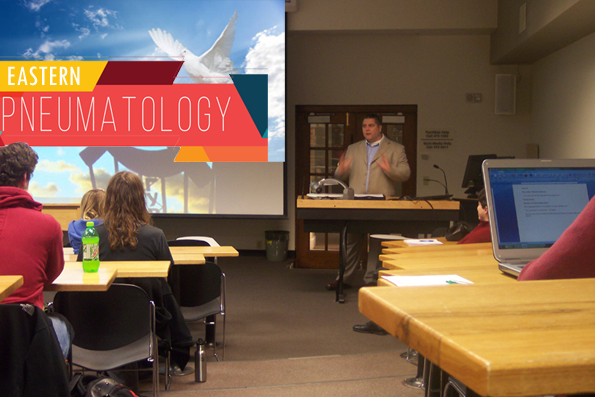
Dony K. Donev, D.Min.: Eastern Pneumotology Lectures
Eastern Orthodoxy can be expressed in one word: theism. The purpose and meaning of life is to become more like God. Deification is pursued by all means of human existence. This quest for divine likeness often includes the typical for the Eastern Church, speculation on the divinity and humanity of Christ, traditions on the doctrine of the Trinity and non-traditional mystical experiences. They appear in the context of both physical and spiritual characteristics in individual and corporate ecclesiastical environment. The role of the Spirit in the process of deification is threefold and involves: creation, re-creation and theism. Eastern Pneumotology follows the graduate process of theism development. The Spirit is involved in the original creation of the world as well as the new-birth experience. His work however, does not end there, but continues throughout the process of personal deification of the believer.
Departures from Orthodoxy
And thus, we arrive at the point of departure from Orthodoxy. Similar to Eastern Pneumotology, this departure can be expressed in one word, dualism. A prime example of the dualistic heresy is the Messalian movement. Arising around AD 360 in Edessa, the Messalians are described as polytheistic. They believe that every human creature has a personal demon, and that Satan and the Holy Spirit together can dwell in the individual. The believers receive a share of the divine Spirit and become equal to God in their incapability to sin.[1] Interesting enough, the Messalians are highly feministic allowing their women to the top of the ecclesiastical hierarchy.
A similar movement arises under the name Paulicians. Due to the mass persecution through which the Paulicians go, the preserved documents about their existence in history are limited. We do know that they appeared in Armenia and the Byzantium Empire. The final trace of Eastern dualism is in on the Balkans, and more particular in Bulgaria under the name Bogomils. 18[2]
Ministry Implications
The next three brief ministerial applications are inspired and drown from the above research on the experiences of the Oriental Orthodox. They are taken in chronological order in its direct context of Pentecostal practices.
- Prayer is the constantly present element through which pneumatic and mystical experiences in the East are obtained. For example, Pallamas reports that the gifts of the Spirit are obtained only through intense mental prayer, which is often accompanied with tears. [3] In the same charismatic context Cassian concludes that after a season the gifts will disappear. My personal implication is that this is precisely the season when prayer and have become strange to the church, and when tears have become are sign of weekends rather than a sign of humility in the presence of the Almighty God. Unfortunately, at the end of the twentieth century, this is precisely our general present satiation.
- Peace of Heart: Hazzaya gives five practical signs for recognition of the works of the Holy Spirit: (1) love of God burns within the heart of the believer, (2) growth in humility of the soul, (3) kindness to all people, (4) true love and (5) vision of mind. His main tool to recognize demons and demonic visions from God and divine revelations is the peace of heart, which follows the heavenly presence.[4] I am persuaded that today the rule of the peace of heart is still true in the hearing of the voice of God.
- Return, reclaim and preservation: The Armenian faith practices focus on preservation of the apostolic doctrines and habits.[5] Symeon the New Theologian also calls for a return to a radical living of the Gospel.[6] In a similar way, the early Church of God claimed to have as a main goal the reclaiming of the power of Pentecost; however, the church today has evolved to a structure that is quite far from this former idea. Furthermore, in this process the church has become too distinguished, replacing the primitivism of the Pentecostal experience with higher education, development programs, sophisticated structures, etc. And while a century ago we were the persecuted and ridiculed, now we are the people who reject and mock churches that carry the Pentecostal primitivism. Through this, we not only deny our historical relationship with them, but also abolish our Pentecostal heritage, which we often like to brag about.
Nevertheless, similar to the early Pentecostal movement, revival will not come to our churches through sophisticated worship liturgies, but rather through a genuine return to the initial Pentecostal experience. At the end of the twentieth century, simply reclaiming the power of Pentecostal is not sufficient. We need to preserve the Pentecostal primitivism in the reality of our present ecclesiastical setting. Only then we will be who we claim that we are.
[1] John of Damascus, De Haeresibus Compendio, 80, PS 3/1:col. clxxvi.
[2] Steven Runciman, The Medieval Manichee: A Study of the Christian Dualistic Heresy (Cambridge University Press, 1974), chapters 2, 4, and 5.
[3] Burgess, 52-53.
[4] Ibid., 173-74.
[5] Ibid., 113.
[6] Ibid., 62.
It’s the culture, Sir
The lesson here is that culture matters – forget this and all other efforts with regard to talent initiatives will be dysfunctional, if not altogether lost. Don’t allow your culture to evolve by default, create it by design. The first step in cultural design is to be very, very careful who you let through the front door. People, their traits, attitudes, and work ethic (or lack thereof) are contagions. This can be positive or negative – the choice is yours. The old saying, “talent begets talent” is true, but talent that aligns with culture will produce better results than talent that does not.
The Non-Chalcedonian Eastern Church: Coptic

Dony K. Donev, D.Min.: Eastern Pneumotology Lectures
Eastern Orthodoxy can be expressed in one word: theism. The purpose and meaning of life is to become more like God. Deification is pursued by all means of human existence. This quest for divine likeness often includes the typical for the Eastern Church, speculation on the divinity and humanity of Christ, traditions on the doctrine of the Trinity and non-traditional mystical experiences. They appear in the context of both physical and spiritual characteristics in individual and corporate ecclesiastical environment. The role of the Spirit in the process of deification is threefold and involves: creation, re-creation and theism. Eastern Pneumotology follows the graduate process of theism development. The Spirit is involved in the original creation of the world as well as the new-birth experience. His work however, does not end there, but continues throughout the process of personal deification of the believer.
The Non-Chalcedonian Eastern Church: Coptic
The connection between the Egyptian Church and the Holy Spirit can be traced back all the way to the birth of Jesus in the beginning of the Gospel narrative. Following the early ecclesiastical history, the development of the church continues with the desert fathers, among who Anthony of Egypt is a prime example.
In this context, the Coptics focus on anointing with oil, laying on of hands, and even laying on of the Bible or other holy objects on the sick person as a healing method. Because of their teaching about the connection between demons and deceases, exorcism is practiced along with healing.[1]
This is consistent with the writings of one of their prime writers by the name of Shenoute of Atripe (4th-5th century), who believed that the Holy Spirit is a life-giving force needed in order to obtain victory in both the spiritual and material worlds.[2] Impacted by the problems of the monastic life, his theology further reflected on the Spirit as “a consistent vigilance.” [3]
The Spirit is also the one who maintains the walls of the individual’s heart. In this sense, the spirit is the agent of continuous victory in the life of the Christian. Shenoute’s teaching of momentarily and continuous victory is similar to what we consider today as sanctification of the believer. This is further revealed in his belief of the fruits of the Spirit being manifested as a result of the believer’s victory over evil.[4] This element of Shenoute’s credo integrates a continuation with the previously discussed positions on the fruit of the Spirit by Maximus the Confessor and Gregory Narek.
Even wider range of mystical experiences in the context of the Coptic Church is provided by Pseudo-Macareus (4th c.). In his view, the Spirit is the one who nourishes the Church, and as such He is also the source and the provider of the pneumatic experiences.[5] Similar to John Cassian, he describes the Spirit in the means of light and “inflammation.”[6] In his description of the pneumatic experience as ”intoxication,” Pseudo-Macareus is consistent with the previously discussed example of Isaac of Nineveh.[7] Analogically to Symeon the New Theologian, Pseudo-Macareus claims that the above experience is strictly personal.[8] And along with John Cassian, Maximus the Confessor, Seraphim Sarov, Narsai and many others he holds “that a true communion with God is possible only as an individual takes time to enter a quite place for solitary prayer.”[9]
[1] Otto F. A. Meinardus, Christian Egypt: Faith and Life (Cairo: American University Press, 1970), 224.
[2] Johannes Leipoldt and W. E. Crum, eds., Sinuthii archimandritae vita et opera omnia, CSCO 73 Coptic 5 (Paris: e Typographeo reibulicae, 1913; reprint Louvain, imprimerie orientaliste L. Durbecq, 1954), 12-.31-32.
[3] Dimitri Cozby, “Abba Shenute of Atripe: First Homily on the Patriarchs,” in Dwight W. Young, ed., Studies Presented to Hans Jacob Polotsky (Bacon Hill: Pirtle and Polson, 1981), 17-20.
[4] Leipoldt and Crum, 81.2-21.
[5]Granville Penn, Institutes of Christian Perfection (London: John Murray, 1816), 5.12.
[6] Ibid., 5.4.
[7] Inst., 66.
[8] Burgess, 148.
[9] Ibid.
First Day of School in Bulgaria
We Shall Never Forget
The Non-Chalcedonian Eastern Church: Ethiopian

Dony K. Donev, D.Min.: Eastern Pneumotology Lectures
Eastern Orthodoxy can be expressed in one word: theism. The purpose and meaning of life is to become more like God. Deification is pursued by all means of human existence. This quest for divine likeness often includes the typical for the Eastern Church, speculation on the divinity and humanity of Christ, traditions on the doctrine of the Trinity and non-traditional mystical experiences. They appear in the context of both physical and spiritual characteristics in individual and corporate ecclesiastical environment. The role of the Spirit in the process of deification is threefold and involves: creation, re-creation and theism. Eastern Pneumotology follows the graduate process of theism development. The Spirit is involved in the original creation of the world as well as the new-birth experience. His work however, does not end there, but continues throughout the process of personal deification of the believer.
The Non-Chalcedonian Eastern Church: Ethiopian
The Ethiopian Church is not a significance source of information in our study, because the Holy Spirit is not a prime issue there until the fourteenth century.[1] Surprisingly, gifts and fruits of the Spirit are not mentioned. For the Ethiopians, the Holy Spirit the one who teaches us the nature and unity of the Godhead.[2] Similar to the teaching of Hazzaya, the Spirit is the Perfector of the creation.[3] Like the Father and the Son, He blesses the believers and speaks to the church.
The experience of the Spirit for the Ethiopic saints is a vision of the Trinity. In one occasion of such a vision, a man received the elements of the Eucharist from the Trinity. In a similar pattern, nine of the fourteen anaphorae of the Ethiopic church refer to the Holy Spirit changing of the Eucharistic elements into the Body and the Blood of Christ.[4]
[1] Getatchwe Haile, “Religious Controversies and the Growth of Ethiopic Literature in the Fourteenth and Fifteenth Centuries,” Oriens Christianus 65 (1981): 102-36.
[2] G. W. B. Huntingford, “Saints of Medieval Ethiopia,” Abba Salama 10 (1979): 287-89.
[3] Mingana, 148.
[4] O. H. I. Hadji-Burmester, “A Comparative Study of the Form of the Words of Institution and the Epiclesis in the Anaphorae of the Ethiopic Church,” Eastern Churches Quarterly 13:1 (Spring 1959): 41.
Cup & Cross Ministries Shares the Love of Christ with Bulgarian Sunflower Seeds in Polk County, TN

by Kathryn Donev
Sunflowers are so much fun. They are actually thousands of tiny flowers that bring joy in many ways. It’s neat to watch them follow the sun because of a trait called heliotropism. Eating sunflower seeds can lower rates of cardiovascular disease, high cholesterol, and high blood pressure. They are a good source of many vitamins and minerals that can support your immune system. And did you know that a sunflowers destroy contaminants of its surrounding soil, water and air?
Although sunflowers are Native to North America, Bulgaria is among the top 10 sunflower producing countries. As in various places in Polk County, Bulgaria is famous for their golden fields. And believe it or not, you can find Bulgarian sunflower seeds in any Dollar General labeled with the Clover Valley brand. When we were ministering together with Feeding God’s Lambs Summer Program at First Baptist Benton giving a presentation about the 6 Senses of Bulgaria, the kids even got to taste some. Fun.
With a multisensory trip to Bulgaria, we shared how the Holy Spirit is our Sixth Sense to guide and direct us in life and found in everything we touch, see, hear, smell and even taste. When we all come together, we can do great things, just as with the thousands of tiny flowers that come together to have the appearance of a unified flower. Let us be a purifier of our environments and always be reminded to follow the SON. Being consumed with the sixth sense of the Holy Spirit is good for the soul.
Who are the other 500 in the 15/50 Window?
DIGITAL DISCIPLESHIP @ LEE UNIVERSITY:
Who are the other 500 in the 15/50 Window of your church/ministry LIVE broadcast?
5 Ways to Connect With Your Visitors:
- FOSTER A CULTURE OF INVITING
- CREATE A POSITIVE GUEST FLOW
- PREPARE FOR THEIR ARRIVAL
- GET THEIR CONTACT INFORMATION
- ENGAGE THEM WITHIN THE FIRST 48 HOURS
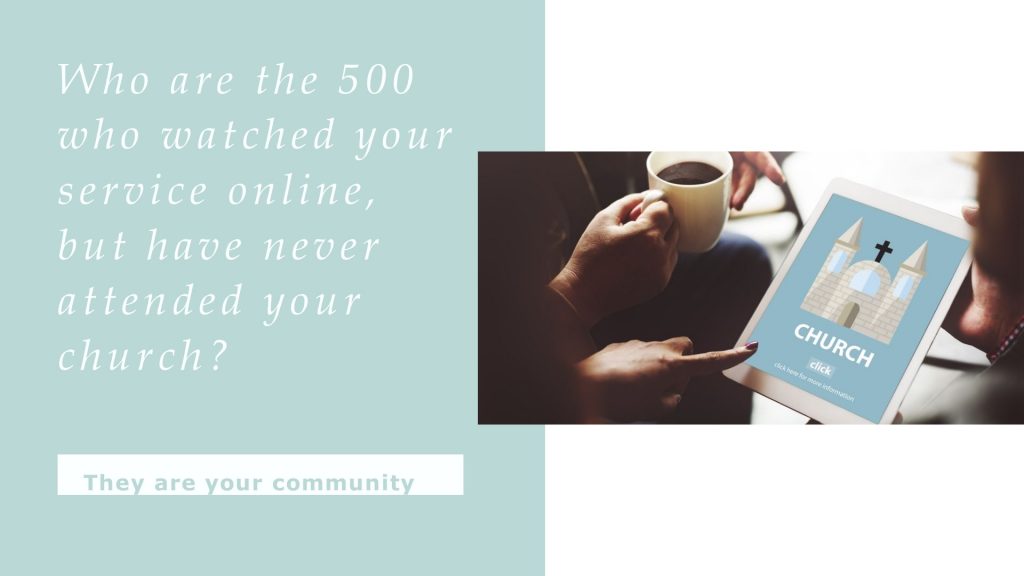
97%of new visitors find church online
Your church’s first impression is being formed online
- Before a family visits a church, they have visited its website
- Takes only 2.6 seconds for an individual to form a first impression
- 94% of first impressions are visual (design-related)
- Visitors will spend 6 seconds on the main image of a website
- Another 6 seconds is spent on the main content
- An average of 5 seconds are spent looking for an address
- Google: “Users strongly prefer website designs that look both simple and familiar” (i.e. low visual complexity)
Bulgaria calls October 2 snap elections amidst caretaker government
SOFIA, Aug 1 (Reuters) – Bulgarian President Rumen Radev set Oct. 2 as the date for the country’s fourth parliamentary election in less than two years on Monday, after the collapse in June of reformist Prime Minister Kiril Petkov’s coalition government. Radev also appointed former labour minister Galab Donev to lead a caretaker government to serve from Aug. 2 until a new government is formed after the election. Radev will outline the priorities of the new government on Tuesday, his office said in a statement.
The European Union country faces surging inflation, natural gas supply doubts and other impacts from the war in Ukraine. The appointment of Donev, 55, a presidential adviser on social policies, is seen as a sign that shielding households from soaring energy and food prices will be a priority for the caretaker administration. This could involve efforts to renew Russian gas imports as well as mending diplomatic relations with Moscow strained under Petkov’s government.


